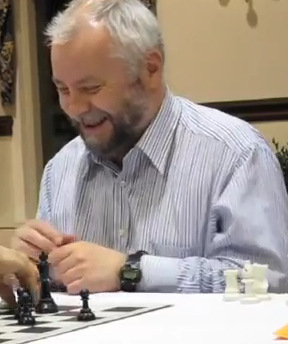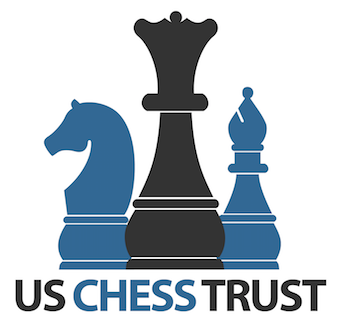Question of the Month: Is There Such A Thing As A Chess Player’s High?

Video/Frames Courtesy of: Macauley Peterson
We’ve all heard of the “runner’s high”, which occurs when endorphins are activated by strenuous exercise.
Does something similar happen to chess players?
My friends and I have all reported feeling the “itch” to play.
Are we unknowingly craving a release of endorphins?
We all have experienced that “Aha” moment, when a difficult problem becomes clear. The solving of a thorny puzzle has always given me a feeling of satisfaction.
Is that feeling endorphin related, or is it something else?
Runner’s speak of a sense of unease when they can’t get in their regular run. We all know chess players who get antsy, if they can’t get a game.
Is basic brain chemistry responsible for those feelings?
What do you think? Send us your comments!
Photo Courtesy of Peterson
Macauley is a freelance mediamaker focusing on the sport of professional chess. During his time with the Internet Chess Club and Chess.FM (2007-2010), he produced over 300 short films about the sport and was voted 2008 “Chess Journalist of the Year” by the Chess Journalists of America. His written work has appeared in Chess Life, Chess Life Online (U.S.A.), New in Chess (Netherlands), “64” (Russia), Chess (U.K.), Jaque and Peon de Rey (Spain), Schach (Germany), and Torre & Cavallo (Italy).


samuel hunt
says:I am quite positive that chess playing does release endorphins in the system. I am sure of it because Of a recently published research article showed that playing competitive chess actually boosted TESTOSTERONE!!
http://www.jstage.jst.go.jp/article/biomedres/29/1/43/_pdf
ABSTRACT
Using a representative table game popular in Japan known as shogi, or Japanese chess, we investigated the effects of winning and losing on saliva composition. The subjects were 90 healthy male university students who were members of a shogi club. Saliva samples were collected immediately before and after playing shogi, and again 30 min later. Salivary cortisol and testosterone levels in the samples were determined by ELISA and EIA, respectively. After finishing each game, the competitiveness of the game was evaluated using questionnaires. In the samples taken after playing shogi, there was an increase in the levels of salivary testosterone and cortisol, regardless of whether the subject won or lost, and the tendency was more pronounced in competitive games. There were no such changes in the control group, who did not play a game prior to providing the samples. Our results suggest that stress response is intimately linked with competition and could be used to determine which players are more capable of handing stress in a competitive environment.